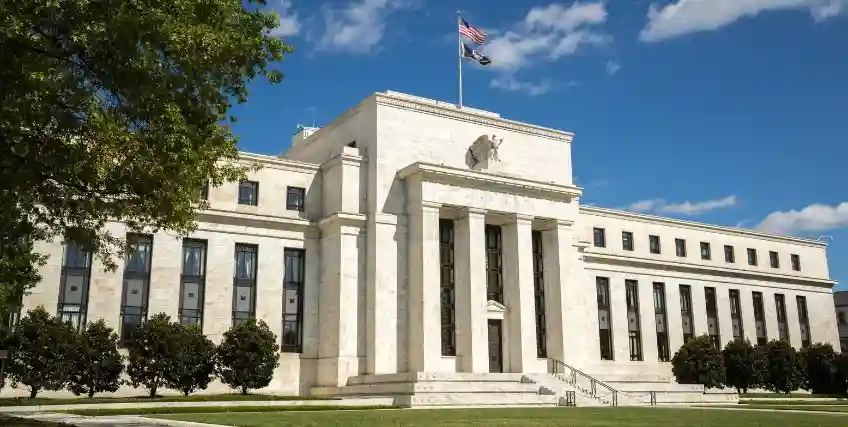Secured Business Loans: A Complete Guide for Small Business Owners
Sep 05, 2025 | Last Updated on: Sep 08, 2025

Accessing capital can be a continual challenge for many small business owners. Whether you’re looking to bridge a cash flow gap, purchase new equipment, or expand the business, financing can help you cover your business needs without over-stretching your working capital.
Qualifying for business financing can be a challenge for many business owners, due to bad personal credit, little time in business, or lackluster annual revenue numbers. That’s when secured business loans may stand out as an option. Here, we explore secured business loans to explain how they work and why they can be a useful solution for entrepreneurs who may not qualify for unsecured financing options.
In this article:
- Understand how a secured business loans and secured line of credit work.
- Explore the advantages and disadvantages of a secured business loan.
- Learn the process of how to secure loans online and raise your eligibility chances.
What is a Secured Business Loan?
A secured business loan is one that requires collateral. Essentially, the borrower pledges an asset as collateral to the lender, which means that the lender may take possession of the asset if the borrower fails to repay the loan. In that case, the lender can seize and sell the asset to help recover their losses, which lowers the risk of lending.
An unsecured business loan is just the opposite: It doesn’t require collateral. In either case, lenders will generally assess a borrower’s creditworthiness, financial history, and business health to determine how risky they are.
A secured business loan can be a preferred path for many small business owners because they often increase borrowing power, making it more likely to qualify for a loan, access a higher loan amount, or get a lower interest rate. The trade-off, of course, is that you will have to risk losing an asset if you can’t pay the loan.
Common Types of Collateral
Collateral is the cornerstone of any secured business loan. The type and value of collateral may have a major impact on the loan amount, interest rate, and repayment terms you’re offered. When you’re applying for a small business loan, these are some of the most common assets that may be pledged as collateral:
- Real estate: Commercial property, land, or even residential property owned by the business owner can help secure larger loan amounts and longer repayment terms.
- Equipment and machinery: Heavy machinery, vehicles, office equipment, or specialized tools are often used as collateral to secure equipment financing, but may also be used for other types of loans.
- Accounts receivable: Businesses that provide invoices to customers, like many service companies, can use unpaid invoices as collateral. This is particularly common in invoice financing or factoring.
- Inventory: Retailers, wholesalers, and manufacturers can use their raw materials or finished goods as collateral. Lenders will gauge the type of inventory and its perishability.
- Cash and investments: Cash savings, stocks, bonds, or other marketable securities are very liquid, so are usually considered strong collateral.
- Blanket lien: In some cases, a lender may place a "blanket lien" on all or most of a business's assets. This grants them the right to seize any business asset if the loan defaults. While it offers maximum security for the lender, it means more of your business assets are at risk. This only happens in cases when a loan application is not strong enough on its own.
Many small business loans may also require a personal guarantee. A personal guarantee means that the borrower pledges to repay the loan from their personal assets if the business cannot, which can put your personal finances at risk if the business defaults.
Pros and Cons of a Secured Business Loan
Like any loan program, there are pros and cons to a secured business loan. You’ll need to weigh them before deciding whether or not a secured business loan is right for your business.
Pros:
- Lower interest rates: Because collateral reduces the lender's risk, secured loan rates are often lower than unsecured loans. The best secured loan rates could translate into substantial savings over the loan's lifetime.
- Higher loan amounts: Lenders are often more comfortable extending larger sums of money when a loan is secured by collateral. That can make it easier for small business owners to make major investments, like buying real estate or funding significant expansion projects.
- Longer repayment terms: Since there is less risk for the lender, they may offer flexible and extended repayment periods, which means smaller monthly payments. That can improve your business’s cash flow and ease the financial burden of a loan.
- Easier qualification process: A secured business loan can be a great option for startups or businesses with a less-than-perfect credit history, because the collateral provides a safety net for the lender. Your creditworthiness still matters, but the collateral can help offset a weaker application with a poor credit score or low revenue.
Cons
- Risk of losing collateral: If your business experiences financial difficulties and defaults on the loan, you stand to lose the asset you pledged as collateral. That can be a huge issue, especially if the asset is critical to your business operations, like machinery or your business property.
- Longer approval process: Securing a secured business loan can sometimes take longer than unsecured options because lenders need to appraise and verify the value and legal status of collateral.
- Potential for additional costs: In addition to the common origination fee, a secured business loan may also have appraisal fees for the collateral assessment, legal fees for lien filings, and other administrative costs that can add to the overall expense of the loan.
- Depreciation of collateral: If your collateral is an asset that depreciates over time (like equipment or vehicles), its value might decrease during the loan term. In some cases, the lender might require you to provide additional collateral if the value of the pledged asset falls below a certain number.
- Requires assets: Not every business has assets to pledge for a secured business loan. That can be a hurdle and require you to provide a personal guarantee or pursue a more expensive unsecured loan or alternative loan options.
The Application Process for a Secured Business Loan
While specific requirements vary by lender, here's a general overview of how to apply for a secured business loan:
- Assess your needs: First, you must determine the exact amount of funding your business requires and for what purpose. This will help you figure out what kind of loan to pursue, how much you can afford to repay each month, and give you a chance to work on your business plan, which can help improve your approval odds.
- Identify collateral: Review your business assets and identify any that could be used as collateral. Consider their value, liquidity, and whether you're willing to risk them.
- Research and compare lenders: Compare different lenders, including traditional banks, credit unions, and online lenders. Their terms, rates, and collateral requirements can vary significantly, so take the time to find the right option for your business.
- Gather documentation: Lenders have different documentation requirements, but usually you’ll need to submit a business plan, financial statements, business bank account statements, tax returns, legal documents, and any available information about proposed collateral for a secured business loan.
- Complete the application: You can usually secure loans online by going through an online application, but some lenders may require you to go in person.
- Underwriting and approval: After applying, the lender will review your application, assess your creditworthiness, and evaluate the collateral. You'll receive a loan offer outlining the terms, interest rate, and repayment schedule if approved.
- Closing and funding: Once you accept the terms, you'll sign the loan agreement, and the lender will typically file a UCC lien on the collateral before funds are disbursed to your business.
Alternatives to Secured Business Loans
If you don’t have the collateral for a secured business loan or are concerned about risking it, consider these business lending alternatives:
- Unsecured business loans: As mentioned, these don't require collateral but often come with higher interest rates and stricter credit requirements.
- Business lines of credit: Lines of credit give you access to a credit line that you can borrow from when you need to make business purchases. Similar to a credit card, they allow you to draw and repay as needed, only paying interest on what you borrow rather than the full loan amount. You can get either an unsecured or secured line of credit.
- SBA loans: Partially guaranteed by the U.S. Small Business Administration, these loans often have favorable terms, but strict eligibility requirements. SBA loans can be either secured or unsecured depending on the business’s qualifications, the loan program, and the loan amount.
- Business credit cards: Credit cards are useful for smaller, ongoing expenses, but typically carry higher interest rates, so it’s important to pay the statement balance each month.
Final Thoughts
A secured business loan can be a powerful tool for small business owners ready to grow or looking to manage operations and cash flow. By using existing business assets as collateral, business owners can often access larger loan amounts, lower interest rates, and more flexible repayment terms than with unsecured options.
Like any loan option, you should fully understand the risks of a secured business loan before you pursue one, especially since you could lose a valuable asset if something changes with your business and you’re unable to pay the loan. But with the right planning and risk tolerance, a secured business loan can be a great strategic move for your business.
FAQs About Secured Business Loans
What is the main difference between a secured and unsecured business loan?
A secured business loan requires you to pledge an asset as collateral, whereas an unsecured loan does not.
Can I use personal assets as collateral for a business loan?
In some cases, lenders may accept personal assets, such as personal real estate or investments, as collateral for business loans. This may be the case for a new business or businesses with limited business assets.
What happens if I default on a secured business loan?
If you default on a secured business loan, the lender has the legal right to seize and sell the collateral you pledged to recover the outstanding debt.
Are secured business loans always better than unsecured loans?
While a secured business loan often offers lower interest rates and higher loan amounts, the risk of losing your collateral may outweigh the benefits. The right option depends on your business’s financial health and risk tolerance.
How long does it take to get a secured business loan?
Loan processing times vary, but the collateral appraisal process makes secured business loans typically take longer than unsecured ones. Ultimately, it depends on the lender and the complexity of the collateral, but expect it to take at least a few weeks.
Frequent searches leading to this page
Term Loans are made by Itria Ventures LLC or Cross River Bank, Member FDIC. This is not a deposit product. California residents: Itria Ventures LLC is licensed by the Department of Financial Protection and Innovation. Loans are made or arranged pursuant to California Financing Law License # 60DBO-35839




